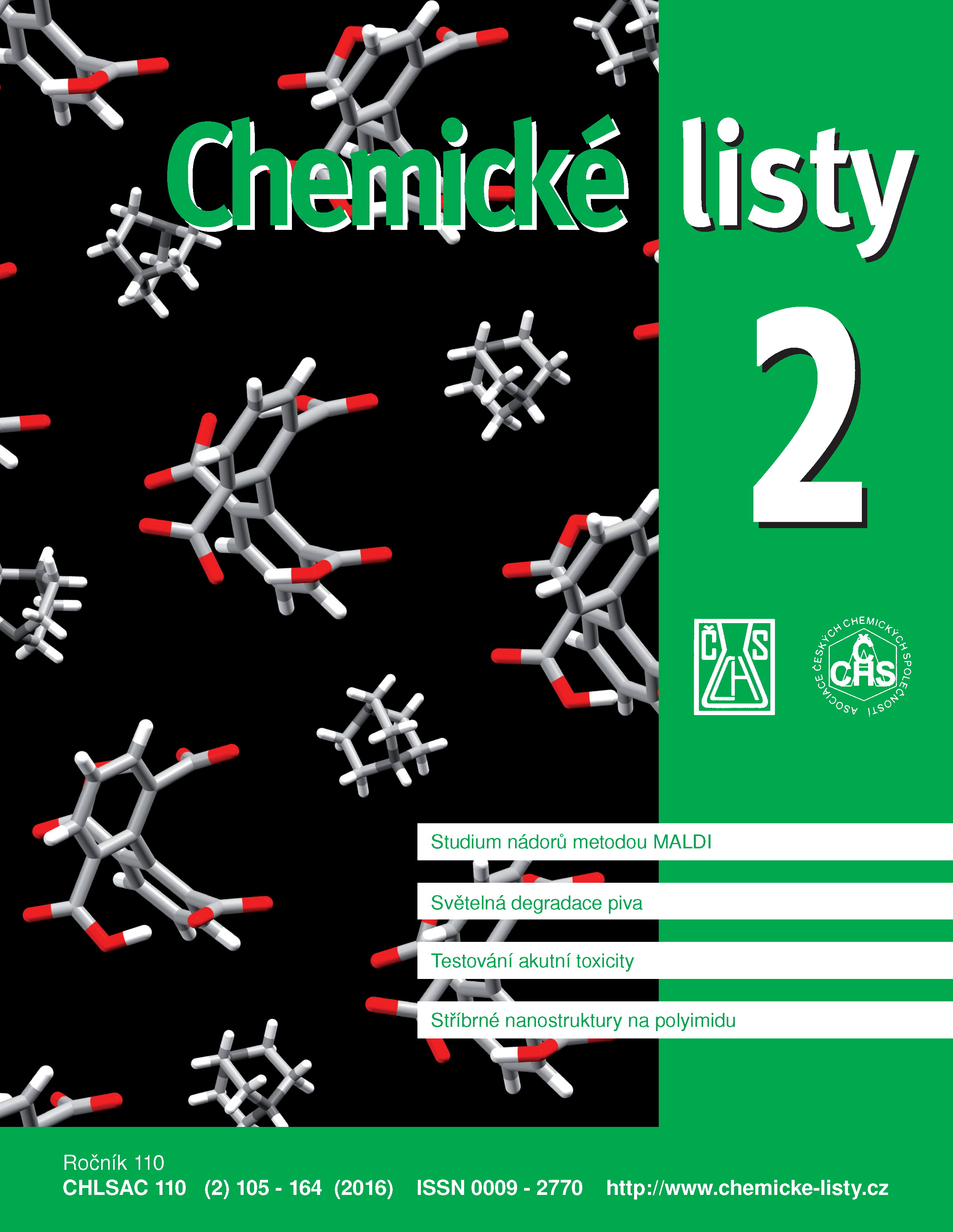Analysis of Nucleotides in Biological Material
Keywords:
nucleotides, solid phase extraction, liquid chromatography, mass spectrometry, capillary electrophoresisAbstract
Nucleotides are essential constituents of all living organisms. Monitoring of their levels could provide valuable information about the energy status of native and/or cultivated cells. Moreover, the enzymes involved in nucleotide metabolism are often the targets of antiviral, anticancer and immunosuppressive drugs. This review brings an overview of methods used for analysis of endogenous nucleotides and their synthetic analogs in biological material of various origin. Advantages, disadvantages as well as the principles of the respective methods are briefly discussed.





